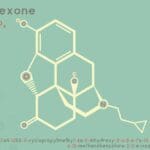It is always tricky to put people into categories. After all, each and every one of us is unique and complex and inconsistent and changing all of the time. Still and all, it can sometimes be useful to think about differences among people by considering characteristics that seem to provide some insight into why various people behave in various ways.
Take, for example, the idea that some people are described as extroverts and others as introverts. The category “extrovert” includes folks who thrive on social interactions and who love to contribute to vibrant conversations that may include lots of voices. The category “introvert” includes folks who might prefer one-on-one conversations to group interactions and who value quiet time to reflect and to think things through.
Of course, plenty of people fall somewhere in between extroverted and introverted. The category “ambivert” describes those who sometimes lean toward extroverted behavior and sometimes lean toward introverted behavior. Truthfully, that probably describes most people.
That said, a person in recovery from a substance use disorder who tends to be more introverted than extroverted may find they need to employ somewhat different strategies as they work to maintain their sobriety. Let’s take a look at a couple of ways introverted individuals might more effectively approach the recovery journey.
It Is Okay to Value Your Alone Time in Recovery
Often, people in recovery are warned against too much isolation. Time spent alone can lead to excessive rumination about past mistakes and ongoing worry about the future. It can also engender feelings of boredom or loneliness. All of those things can threaten your hard-won sobriety if they are not kept in check.
But if you are a more introverted person, you might truly value your time alone. Indeed, you may need it in order to effectively manage stress—which is a key to staying sober. Introverts often enjoy quiet time to think, to read, to listen to music, to meditate, to enjoy a solo hobby, and more. These quiet and solitary activities support an introvert’s ongoing sobriety rather than putting it at risk.
Nevertheless, even an introvert needs to stay vigilant about how they are feeling when they are alone. Much of the time, those quiet periods may lead to feelings of contentment and relaxation. But if feelings of loneliness or boredom arise or if rumination or worry start to creep in, it is time for some human interaction. Knowing who among your social group supports your sobriety and makes you feel comfortable can help you get that necessary interaction in a way that helps you reset.
Find Ways to Manage Group Settings Effectively
As anyone in recovery from a substance use disorder knows, regularly participating in group interactions—in the form of 12-Step or other recovery program meetings—is a central strategy for staying sober. Gathering with people who truly understand what you have been through and what you are going through now can be an extremely effective and important kind of ongoing support for your sobriety.
But for a person who tends to be more introverted, those meetings that are intended to help can actually be problematic. An introvert may well find recovery meetings draining and uncomfortable rather than consistently helpful. We should note that the same can be true of group therapy sessions during or after substance use disorder treatment.
Given this reality, it might be tempting to conclude that meetings should not be part of an introvert’s approach to recovery. But that is not what we are suggesting at all. Instead, we suggest finding ways to manage recovery meetings effectively. For example, consistently sitting with a person you know and trust can “shrink” the group so that you feel more comfortable. You may also find that smaller interactions—getting a cup of coffee after the meeting with a smaller group or meeting regularly one-on-one with your sponsor or mentor—are parts of the recovery program experience that are most helpful to you. Long and short: A thoughtful approach to recovery program meetings can serve introverts well.
We Can Help You Reclaim Your Sobriety—And Your Life
Whether you are an introvert, an extrovert, or an ambivert, The Aviary Recovery Center can help you get—and stay—sober. We offer individualized, evidence-based treatment for substance use disorders and co-occurring mental health disorders. Located near St. Louis, Missouri, The Aviary Recovery Center offers a range of treatment options, including an inpatient program, outpatient alternatives, and a virtual program.
The Aviary Recovery Center has been recognized as one of the best substance use disorder treatment centers in America for the second consecutive year. That means you can count on us to deliver high-quality treatment built on the firm foundation of our expertise, experience, and empathy. If you are ready to restart your life free from drugs and alcohol, The Aviary Recovery Center is here to help.










